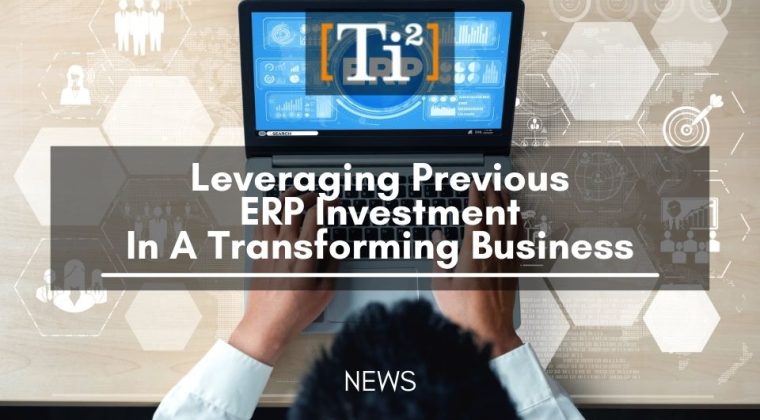
An ERP system, just like a transforming business, comprises many moving parts. Learning how to leverage your previous ERP investment is crucial and important, and when done right, can save you from throwing away millions of dollars.
Several important factors that will affect your ERP include data protection, financial regulation, and information security. The manual process of updating an outdated ERP system will consume plenty of time and resources.
To find the right ERP system for your business, identify the following criteria:
- What are the current main features you need in your ERP solution?
- Do you have a plan to expand or transform your business soon? Is the ERP solution providing the flexibility you need in terms of deployment and infrastructure?
- What is the possible cost of updating or expanding your ERP?
- Is it user-friendly and intuitive?
- Does the ERP have the integration and support you need for your existing infrastructure?
- Does it provide real-time cloud technology?
There are always drawbacks to every Software as a Service, your job is to make sure, you won’t be ‘imprisoned’ with an ERP that doesn’t allow you to move or integrate to, or with a different system. Always weigh out the benefits and drawbacks to each specific function you need before it highly impacts your business.
Benefits Of Having A Strategized ERP
In order for one to leverage the system, they must first understand the full potential that it can achieve.
ERP is designed to help enterprises automate business processes by providing not only a computed system, but also real time insights and internal control.
Revenue can only be generated with strategy, concrete data, and decisions. With a central database, accounting, documentation, manufacturing, supply chain management, all the way to sales, marketing, and HR can be compiled and run through a single solution.
There are three deployment models for ERP, cloud, on-premise, and hybrid. Which to leverage for your business would depend on your business’ needs.
There are several ways to implement ERP to your business.
- Traditionally, you can purchase the hardware and software to deploy it in a private cloud hosted on-premise.
- Deploy with a third-party cloud-hosting provider to manage cloud service after you purchase the hardware and software.
- Subscribe to ERP SaaS for a full cloud ERP.
To identify which process is best suited for your business, make sure to establish a clear view of your business’ priority and strategy focus.
ERP for Manufacturing Operation
Manufacturing today has the ultimate objective of increasing product performance and utilization by competing and innovating a more effective system. An ERP solution can help achieve that.
ERP is proven to help decrease operational complexity by facilitating productivity, planning, and production quality. All that while reducing cost.
With industry functionality built in, ERP makes it easier to support and grow unique business needs.
Some ERP may support various manufacturing models: engineer-to-order, configure-to-order, and/or repetitive.
With strategic configurations, businesses can accelerate product innovation by leveraging product lifecycle management (PLM) with embedded regulatory, quality, and supply chain impact analysis.
An ERP software also serves as a CRM to implement a seamless customer communication with price, quote, configure capabilities and order management.
With a complete project control system, ERP can also help breakdown work structure, as well as enable detailed project pegging and analytics in addition to scheduling and costing.
With consistent and quality customer service delivered, revenue will increase through the enhanced business models. Some additional features you can offer to your customer may include superior aftermarket capabilities and warranty management such as depot repair, field service, embedded configuration management, resource planning, and IoT integration for product delivery.
Are you tired of fulfillment challenges? Now you can gain end-to-end supply chain visibility and leverage your system to increase communication and efficiency.
With various other advantage, cloud ERP can benefit industrial manufacturing to give the necessary level of visibility, process, and agility.
Whether you have a customized software built out for your business or just starting to choose an ERP solution for your business, make sure to go over the criterias and methods to see what will best fit your business’ needs. Some possible alternatives may include choosing a vendor that can integrate your existing infrastructure to a hybrid or cloud service to keep everything up-to-date.
Ti2 is currently very focused on working with its global partners to secure stock and avoid long delay times in delivering products to their customers. Together with our trusted partners, we are here to provide solutions.
To learn more about what we do, please click projects, products & services.
Please click here to email us your inquiry, we would like to hear from you.
Article inspired from netsuite, isuu, whitelight, infor and diginomica.
